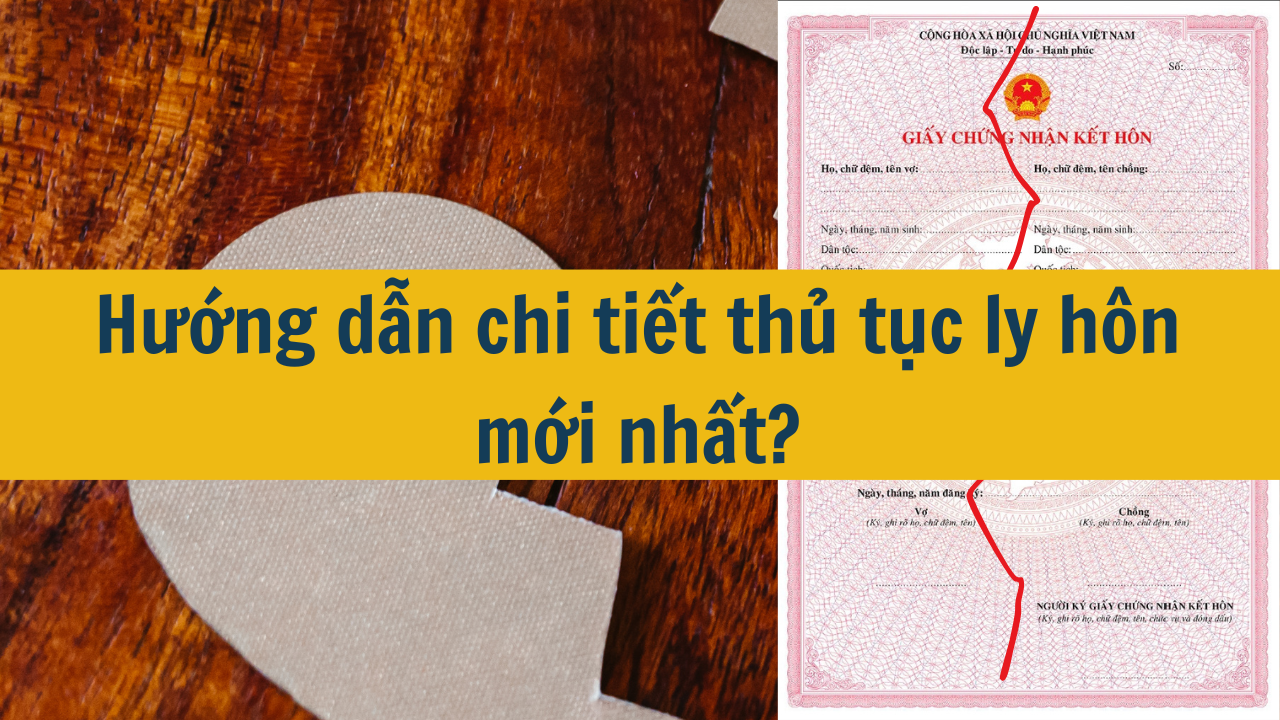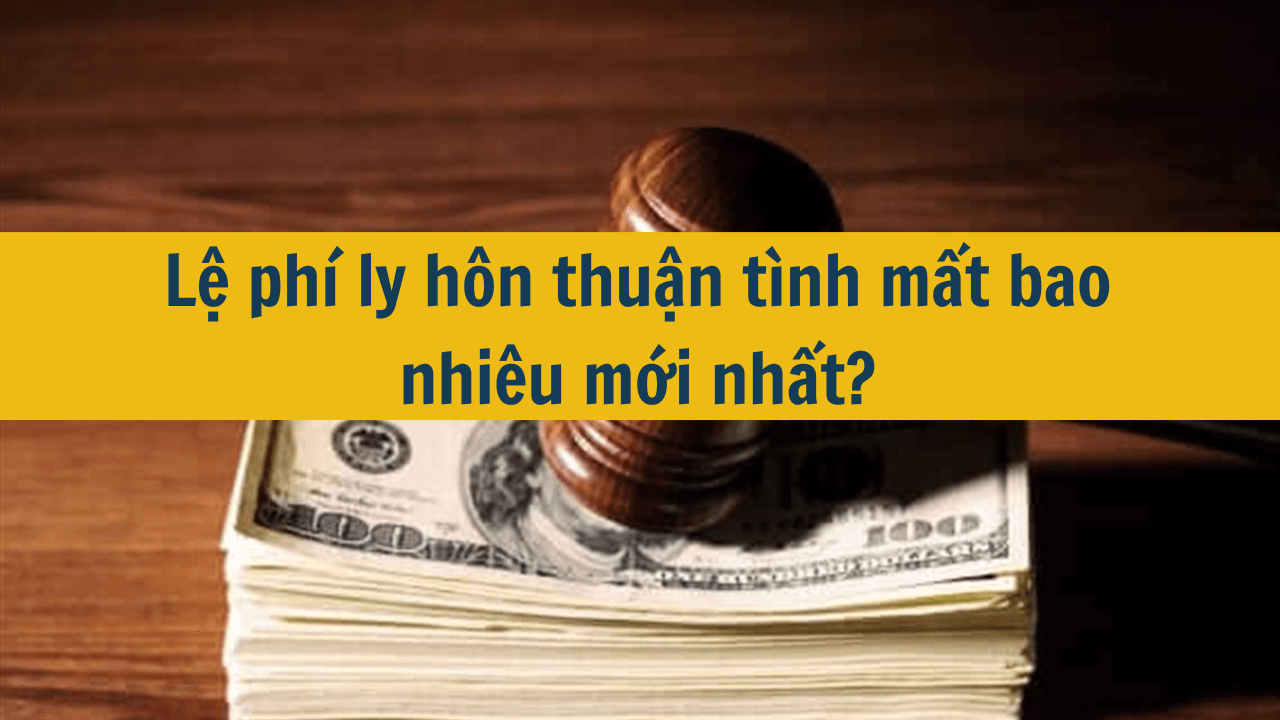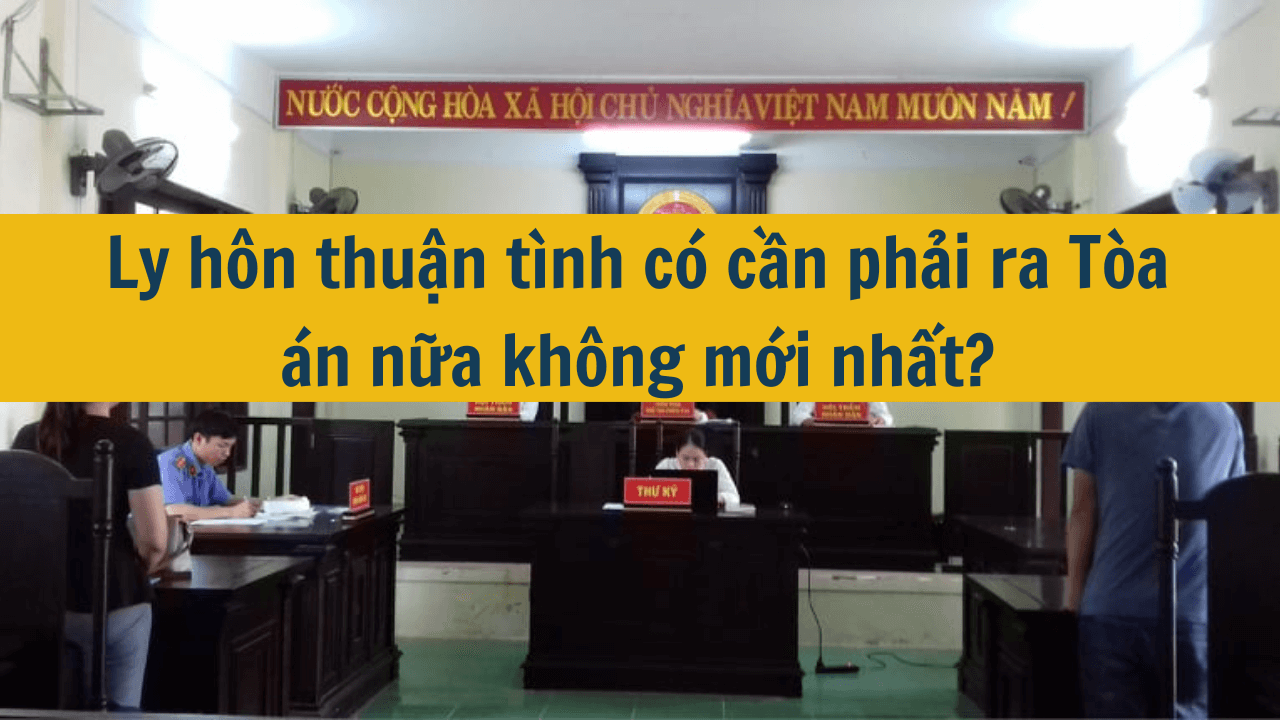 Tìm kiếm
Tìm kiếm
Phần thứ năm Bộ luật tố tụng dân sự 2015: Thủ tục xét lại bản án, quyết định đã có hiệu lực pháp luật
| Số hiệu: | 92/2015/QH13 | Loại văn bản: | Luật |
| Nơi ban hành: | Quốc hội | Người ký: | Nguyễn Sinh Hùng |
| Ngày ban hành: | 25/11/2015 | Ngày hiệu lực: | 01/07/2016 |
| Ngày công báo: | 29/12/2015 | Số công báo: | Từ số 1251 đến số 1252 |
| Lĩnh vực: | Thủ tục Tố tụng | Tình trạng: | Còn hiệu lực |
TÓM TẮT VĂN BẢN
Bộ luật tố tụng dân sự 2015 được ban hành ngày 25/11/2015 với nhiều quy định về thẩm quyền của Tòa án; cơ quan tiến hành tố tụng, người tiến hành tố tụng; thành phần giải quyết việc dân sự; người tham gia tố tụng; chứng minh, chứng cứ; biện pháp khẩn cấp tạm thời; chi phí tố tụng;…
Bộ luật tố tụng dân sự năm 2015 gồm 10 Phần, 42 Chương, 517 Điều (Thay vì Bộ luật Tố tụng dân sự 2004 chỉ gồm 9 Phần, 36 Chương, 418 Điều). BLTTDS 2015 có bố cục gồm các Phần sau:
- Những quy định chung
- Thủ tục giải quyết vụ án tại Tòa án cấp sơ thẩm
- Thủ tục giải quyết vụ án tại Tòa án cấp phúc thẩm
- Giải quyết vụ án dân sự theo thủ tục rút gọn
- Thủ tục xét lại bản án, quyết định đã có hiệu lực pháp luật
- Thủ tục giải quyết việc dân sự
- Thủ tục công nhận và co thi hành tại Việc Nam hoặc không công nhận bản án, quyết định dân sự của Tòa án nước ngoài; công nhận và cho thi hành phán quyết của trọng tài nước ngoài
- thủ tục giải quyết vụ việc dân sự có yếu tố nước ngoài
- Thi hành Bản án, quyết định dân sự của Tòa án
- Xử lý hành vi cản trở hoạt động tố tụng, khiếu nại, tố cáo trong tố tụng
Theo đó, Bộ luật TTDS 2015 có những điểm sau đáng chú ý:
- Bổ sung mới quy định về Giải quyết vụ việc dân sự trong trường hợp chưa có điều luật để áp dụng:
+ Thẩm quyền của Tòa án thụ lý, giải quyết vụ việc dân sự trong trường hợp chưa có điều luật để áp dụng được thực hiện theo các điều từ Điều 35 đến Điều 41 của Bộ luật tố tụng dân sự năm 2015.
+ Trình tự, thủ tục thụ lý, giải quyết vụ việc dân sự theo Bộ luật số 92/2015/QH13.
+ Nguyên tắc giải quyết vụ việc dân sự trong trường hợp chưa có điều luật để áp dụng thực hiện theo Điều 45 Luật này về việc áp dụng tập quán, áp dụng tương tự pháp luật, áp dụng các nguyên tắc cơ bản của pháp luật dân sự, án lệ, lẽ công bằng.
- Phiên họp kiểm tra việc giao nộp, tiếp cận, công khai chứng cứ và hòa giải
Thẩm phán tiến hành mở phiên họp kiểm tra việc giao nộp, tiếp cận, công khai chứng cứ và hòa giải giữa các đương sự. Trước khi tiến hành phiên họp, Thẩm phán phải thông báo cho đương sự, người đại diện hợp pháp của đương sự, người bảo vệ quyền và lợi ích hợp pháp của đương sự về thời gian, địa điểm tiến hành phiên họp và nội dung của phiên họp.
- Phát hiện và kiến nghị sửa đổi, bổ sung hoặc hủy bỏ văn bản quy phạm pháp luật tại Điều 221 Bộ luật tố tụng dân sự 2015
Trong quá trình giải quyết vụ án dân sự, nếu phát hiện văn bản quy phạm pháp luật liên quan đến việc giải quyết vụ án dân sự có dấu hiệu trái với Hiến pháp, luật, nghị quyết của Quốc hội, pháp lệnh, nghị quyết của Ủy ban thường vụ Quốc hội, văn bản quy phạm pháp luật của cơ quan nhà nước cấp trên thì Tòa án thực hiện như sau:
+ Trường hợp chưa có quyết định đưa vụ án ra xét xử thì Thẩm phán được phân công giải quyết vụ án báo cáo và đề nghị Chánh án Tòa án đang giải quyết vụ án có văn bản đề nghị Chánh án Tòa án nhân dân tối cao kiến nghị cơ quan nhà nước có thẩm quyền xem xét sửa đổi, bổ sung hoặc bãi bỏ văn bản quy phạm pháp luật;
+ Trường hợp đã có quyết định đưa vụ án ra xét xử hoặc vụ án đang được xem xét tại phiên tòa hoặc đang được xét xử theo thủ tục giám đốc thẩm, tái thẩm thì Hội đồng xét xử tạm ngừng phiên tòa theo quy định tại điểm e khoản 1 Điều 259 của Bộ luật này và báo cáo Chánh án Tòa án đang giải quyết vụ án có văn bản đề nghị Chánh án Tòa án nhân dân tối cao kiến nghị cơ quan nhà nước có thẩm quyền xem xét sửa đổi, bổ sung hoặc bãi bỏ văn bản quy phạm pháp luật.
- Điều 247 Bộ Luật 92/2015/QH13 quy định rõ nội dung và phương thức tranh tụng tại phiên tòa
+ Tranh tụng tại phiên tòa bao gồm việc trình bày chứng cứ, hỏi, đối đáp, trả lời và phát biểu quan điểm, lập luận về đánh giá chứng cứ, tình tiết của vụ án dân sự, quan hệ pháp luật tranh chấp và pháp luật áp dụng để giải quyết yêu cầu của các đương sự trong vụ án.
- Bổ sung phần thứ tư về Giải quyết vụ án dân sự theo thủ tục rút gọn quy định:
+ Điều kiện áp dụng thủ tục rút gọn
+ Quyết định đưa vụ án ra xét xử theo thủ tục rút gọn
+ Phiên tòa xét xử theo thủ tục rút gọn
+ Thủ tục phúc thẩm rút gọn đối với bản án, quyết định của Tòa án cấp sơ thẩm bị kháng cáo, kháng nghị
Bộ luật tố tụng DS năm 2015 có hiệu lực từ ngày 01/07/2016 trừ một số quy định thì có hiệu lực từ ngày 01/01/2017, cụ thể tại Khoản 1 Điều 517 Bộ luật TTDS năm 2015.
Văn bản tiếng việt
Văn bản tiếng anh
PROCEDURES FOR REVIEWING LEGALLY EFFECTIVE JUDGMENTS/DECISIONS
CASSATION PROCEDURES
Article 325. Nature of cassation
Cassation means the review of courts' legally effective judgments or decisions, which are appealed against when there are grounds specified in Article 326 of this Code are satisfied.
Article 326. Grounds and conditions for appeal according to cassation procedures
1. A legally effective judgment/decision of the Court shall be appealed against according to cassation procedures when there is one of the following grounds:
a) Conclusion in the judgment/decision is incompatible with the objective details of the cases, causing damage to legitimate rights and interests of the involved parties;
b) There are serious violations against procedures that prevent involved parties from executing their procedural rights and obligations, as the result, their legitimate rights and interests are not protected as prescribed in law;
c) There are mistakes in the application of law leading to the issuance of wrong judgments/decisions, causing bad effect to legitimate rights and interests of involved parties, infringing upon public benefits, State benefits, legitimate rights and interests of the third parties.
2. Persons competent to lodge appeals specified in Article 331 of this Code shall lodge appeals against Courts’ judgments/decisions that are legally effective when there is one of the grounds specified in clause 1 of this Article and shall file applications as provided for in Article 328 of this Code or make notifications/recommendations as prescribed in clauses 2 and 3 Article 327 of this Code. If the judgments/decisions infringe upon public benefits, State benefits, legitimate rights and interests of the third parties, the applications are not required.
Article 327. Discovering legally effective judgments or decisions of Courts which need to be reviewed according to cassation procedures
1. Within 01 year from the day on which the Court’s judgments/decisions takes legally effect, if any legal violations in the judgments/decisions is discovered, involved parties are entitled to submit written applications to persons competent to lodge appeal specified in Article 331 of this Code for consideration according to cassation procedures.
2. If the Courts, the procuracies or other agencies/organizations/individuals discover legal violations in the Courts’ judgments/decisions that are legally effective, written notifications must be sent to persons competent to lodge appeals provided for in Article 331 of this Code.
3. Chief Justices of People’s Courts of provinces shall file recommendations to Chief Justices of Collegial People’s Courts/Supreme People’s Courts, the Chief Justices of Collegial People’s Courts shall file recommendations to Chief Justices of Supreme People’s Courts, to review the appeals against Courts’ judgments/decisions that are legally effective according to cassation procedures if any ground specified in clause 1 Article 326 of this Code is discovered.
Article 328. Application for reviewing legally effective judgments or decisions according to cassation procedures
1. An application for reviewing Courts’ judgments/decisions which are legally effective according to cassation procedures must have the following principal details:
a) Date of making the application;
b) Name and address of the applicant;
c) Name of the Court’s legally effective judgment/decision subject to reviewing according to cassation procedures;
d) Reasons for the application, requests of the applicant;
dd) Signature or fingerprints, applicable to applicants being individuals, or signature and seal of lawful representatives, applicable to applicants being agencies or organizations, in the end of the application. If the applicant is an enterprise, the use of the seal shall comply with provisions of the Law on Enterprise.
2. Enclosed with the application shall be Courts' legally effective judgments/decisions and materials and evidences (if any) to prove that the applicants’ requests are well-grounded and lawful.
3. The application and materials and/or evidences shall be sent to persons competent to lodge appeals provided for in Article 331 of this Code.
Article 329. Procedures for receiving applications for reviewing courts’ legally effective judgments or decisions according to cassation procedures
1. Courts/procuracies shall receive applications that are submitted by the involved parties directly at the Courts/procuracies or by post and shall record to the application registers and issue receiving slips for involved parties. Date of sending of application shall be calculated from the day on which the involved parties submit the application at the Courts/procuracies or the sending date written on the post seal.
2. Courts/procuracies shall accept the applications only when all provisions specified in Article 328 of this Code are satisfied. If the applications do not satisfy conditions specified in Article 328 of this Code, the Courts/Procuracies shall request the applicants to submit application for amendment/supplement within 01 month from the day on which the requests from the Courts/Procuracies are received. Upon the expiry of such period, if the applicants fail to conduct amendment/supplement, the Courts/Procuracies shall return the applications enclosed with explanation and note such cases in the application registers.
3. Persons competent to file appeals according to cassation procedures shall assign persons to study the petitions, notifications, recommendations and case files then request the persons competent to file appeals to consider and make decisions. If the petitions are rejected, written notifications containing explanation shall be sent to involved parties, agencies, organizations and individuals that have sent the notifications/recommendations.
The Chief Justice of the Supreme People’s Court shall assign Judges of the Supreme People’s Court, the Chairperson of the Supreme People’s Procuracy shall assign procurators of the Supreme People’s Procuracy to study the petitions, notifications, recommendations, case files and report them to the Chief Justice of the Supreme People’s Court and the Chairperson of the Supreme People’s Procuracy for considering and making decisions on appeal. If the petitions are rejected, the Chief Justice of the Supreme People’s Court, the Chairperson of the Supreme People’s Procuracy shall, by themselves or authorize the Judge of the Supreme People’s Court and procurators of the Supreme People’s Procuracy to send written notifications containing explanation to the involved parties and individuals that have sent the notifications/recommendations.
Article 330. Supplement, verification of materials and evidences in cassation procedures
1. Involved parties shall be entitled to provide materials and evidences for persons competent to file appeals according to cassation procedures if such materials and evidences have not been supplied to the first-instance Courts or the appellate Courts because such Courts had not required or because the involved parties failed to supplied due to good and sufficient reasons or because the involved parties did not know about such materials and evidences during the resolution of the cases.
2. During the resolution of petitions for consideration of the legally effective judgments/decisions of Courts according to cassation procedures, persons competent to file appeals according to cassation procedures shall be entitled to request the petitioners to supplement materials and evidences or inspect and verify the materials and evidences by themselves if necessary.
Article 331. Persons competent to appeal according to cassation procedures
1. The Chief Justice of the Supreme People's Court and the Chairperson of the Supreme People’s Procuracy shall be competent to appeal according to cassation procedures against the legally effective judgments or decisions of the Collegial People’s Court; legally effective judgments or decisions of other Courts when it is deemed necessary, except for cassation decisions of the Council of Judges of the Supreme People's Court.
2. The Chief Justices of the Collegial People’s Courts and the chairpersons of the shall be entitled to appeal according to the cassation procedures against legally effective judgments or decisions of People’s Courts of provinces or People’s Courts of districts within territorial competence.
Article 332. Postponement and suspension of enforcement of legally effective judgments or decisions
1. Persons who are competent to appeal against legally effective judgments or decisions of Courts may request the postponement of enforcement of judgments or decisions in order to consider the appeals according to cassation procedures. The postponement of enforcement of judgments shall comply with law regulations on civil judgment execution.
2. Persons who have appealed according to cassation procedures legally effective judgments or decisions shall have the right to decide on the suspension of enforcement of such judgments or decisions until the cassation decisions are made.
Article 333. Decisions to appeal according to cassation procedures
A decision to appeal according to cassation procedures shall consist of the following principal contents:
1. Date and number of the appeal decision;
2. Position of the person who makes the appeal decision;
3. Number and date of the legally effective judgment or decision being appealed against;
4. Decisions of the legally effective judgment or decision being appealed against;
5. Comments, analysis of the violations or errors of the legally effective judgment or decision being appealed against;
6. Legal grounds for making the appeal decision;
7. Whether the appeal is against parts or whole of the legally effective judgment or decision;
8. Name of the Court that is competent to conduct cassation of such case;
9. Proposals of the appellant.
Article 334. Time limit for appeal according to cassation procedures
1. Persons competent to appeal according to cassation procedures are entitled to lodge the appeal within 03 year from the day on which the Court’s judgments/decisions takes legally effect, except for cases specified in clause 2 of this Article.
2. If the time limit for appeal prescribed in clause 1 of this Article expires such time limit shall be extended by 02 years from the day on which such time limit expires if the following conditions are satisfied:
a) The involved parties have submitted applications provided for in clause 1 Article 328 of this Code and maintain the application when the time limit for appeal provided for in clause 1 of this Article has expired;
b) Courts’ legally effective judgments/decisions are contrary to law as prescribed in clause 1 Article 326 of this Code, seriously affecting legitimate rights and interests of involved parties and/or third parties, public benefits, State benefits and are subject to appeal to eliminate faults in such legally effective judgments/decisions.
Article 335. Modification, supplementation, withdrawal of appeals according to cassation procedures
1. Persons who have appealed according to cassation procedures shall be entitled to modify or supplement the appeals if the appeal time limit prescribed in Article 334 of this Code has not yet expired. Such modification/supplement must be made under decisions. Decisions to modify/supplement appeals must be sent according to provisions of Article 336 of this Code.
2. Persons who have appealed shall be entitled to withdraw parts or whole of the appeal decisions before the opening of Court sessions or in cassation Court sessions. Such withdrawal must be made under decisions.
3. After receiving decisions to withdraw whole of the appeal, the cassation Courts shall issue decisions to terminate the cassation trial.
Article 336. Forwarding decisions to appeal according to cassation procedures
1. Decisions to appeal according to cassation procedures must be immediately sent to the Courts that have issued the legally effective judgments/decisions being appealed against, the involved parties, the competent civil judgment-executing agencies and persons whose interests and duties are related to the appealed contents.
2. In cases where the Chief Justices of the Supreme People's Court or the Chief Justices of the Collegial People’s Courts appeal, the appeal decisions and the case files must be immediately sent to the Procuracies of the same level. The procuracies shall study the files within 15 days as from the day on which the case files are received; upon the expiry of such time limit, the procuracies must transfer the case files to the Courts competent to hear the cases according to cassation procedures.
3. In cases where the Chairperson of the Supreme People's Procuracy or the heads of the Collegial People’s procuracies appeal, the appeal decisions must be immediately sent to the Courts competent to hear the cases according to cassation procedures.
Article 337. Jurisdiction to review cases according to cassation procedures
1. The Committee of Judges of the Collegial People’s Courts shall review according to cassation procedures legally effective judgments/decisions of the provincial-level people’s Courts or district-level people's courts, which are appealed against, within competence as follows:
a) The Committee of Judges of the Collegial People’s Courts shall review according to cassation procedures, through trial panels composed of 3 Judges, legally effective judgments/decisions of the provincial-level people’s Courts or district-level people's Courts which are appealed against:
b) If courts’ legally effective judgments/decisions prescribed in point a of this clause are complicated, or judgments/decisions have been reviewed according to cassation procedures by Committee of Judges of Collegial People’s Courts, through trial panels composed of 3 Judges, but no agreement is reached upon the vote on the decisions on case resolution, then the whole of Committee of Judges of Collegial People’s Courts shall review such judgments/decisions according to cassation procedures.
2. The Council of Judges of the Supreme People's Court shall review according to cassation procedures legally effective judgments/decisions of Collegial People’s Courts which are appealed against as follows:
a) The Council of Judges of the Supreme People’s Court shall review according to cassation procedures, through trial panels composed of 5 Judges, legally effective judgments/decisions of Collegial People’s Courts that are appealed against according to cassation procedures;
b) If courts’ legally effective judgments/decisions prescribed in point a of this clause are complicated, or judgments/decisions have been reviewed according to cassation procedures by the Council of Judges of the Supreme People’s Court, through trial panels composed of 5 Judges, but no agreement is reached upon the vote on the decisions on case resolution, then the whole of Council of Judges of Supreme People’s Courts shall review such judgments/decisions according to cassation procedures.
3. Complicated cases mentioned in point b clause 1 and point b clause 2 of this Article are the following cases:
a) Law provisions applicable to matters to be resolved in the case are unclear or are not applied consistently;
b) There is argument over the assessment of evidences and application of law provisions;
c) The case resolution is related to public benefits, State benefits, human’s right protection, civil right protection that are specially concerned.
4. Chief Justices of Collegial People’s Courts shall consider deciding to conduct cassation trials for cases specified in clause 1 of this Article. Chief Justices of Supreme People’s Courts shall consider deciding to conduct cassation trials for cases specified in clause 2 of this Article.
5. If legally effective judgments/decisions are on the same civil lawsuits and within the competence to review according to cassation procedures of both Collegial People’s Courts and the Supreme People’s Court, then the Supreme People’s Court shall have the competence to review according to cassation procedures for the whole of the case.
Article 338. Participants in cassation review Court sessions
1. The cassation review Court sessions must be with the participation of the Procuracies of the same level.
2. If it is deemed necessary, the Court shall summon involved parties or their representatives and defense counsels of their rights and interests or other participants related to the appeal to the cassation review Court session; if any of them is absent from the Court session, the cassation review trial panel shall still carry on the session.
Article 339. Time limit for opening of cassation review Court sessions
Within 04 months as from the day on which the appeals and the enclosed case files are received, the Courts competent to cassation review must open Court sessions to review cases according to cassation procedures.
Article 340. Preparations for cassation review Court session
The Chief Justice of the Court shall assign a Judge to prepare written explanation of the case at the Court session. The written explanation shall summarize the case contents and the judgments/decisions of the Courts of different levels as well as the appealed contents. The explanation must be forwarded to members of the Cassation Review panel not later than 07 days before the opening of the cassation review Court sessions.
Article 341. Trial procedures at cassation review Court sessions
1. After the presiding Judge opens the Court session, a member of the Cassation Review Panel shall present the brief contents of the case, the case handling process, decisions of the legally effective judgments/decisions being appealed against, grounds for the appeal, viewpoint of the appeal and proposals of the appellant. If the appeal is lodge by a procuracy, the procuracy must present the appealed contents.
2. Involved parties, their representatives and defense counsels of their rights and interests or other participants shall be summoned to the cassation review Court by the Court to present opinions about matters requested by the cassation review panel. If any of such persons is absent but has sent his/her written opinions before, the cassation review panel shall pronounce his/her opinions.
3. The representative of the procuracy shall present the opinions of the procuracy on the resolution of the case.
Immediately after the Court session, the representative of the procuracy shall send the writing containing opinions to the Court to be save in the case files.
4. Members of the Cassation Review Panel shall express their opinions and discuss. The Cassation review panel shall conduct deliberation and vote on the resolution of the case and pronounce the decision on the resolution of the case at the court. The deliberation must be conducted according to rules specified in Article 264 of this Code.
5. If the cassation review Court is conducted by the Committee of Judges of Collegial People’s Court as prescribed in point a clause 1 Article 337 of this Code, decisions of the trial panel must be approved by all members of the panel.
For cassation review trial conducted as prescribed in point b clause 1 Article 337 of this Code, the Court session of the whole of the Committee of Judges of the Collegial People’s Court must be under the presence of at least two-thirds of present members of the committee; decisions of the Judge committee must be approved by more than a haft of members of the committee.
6. If the cassation review Court is conducted by the Committee of Judges of the Supreme People’s Court as prescribed in point a clause 2 Article 337 of this Code, decisions of the trial panel must be approved by all members of the panel.
For cassation review trial conducted as prescribed in point b clause 2 Article 337 of this Code, the Court session of the whole of the Committee of Judges of the Supreme People’s Court must be under the presence of at least two-thirds of present members of the committee; decisions of the Judge committee must be approved by more than a haft of members of the committee.
Article 342. Scope of the cassation review
1. The Cassation Review Panels shall only review parts of legally effective judgments/decisions being appealed against or related to the review of the appealed contents.
2. The Cassation Review Panels shall be entitled to review the decisions of the legally effective judgments/decisions which are neither appealed against nor related to the review of the appealed contents, if these parts infringe upon the public interests, interests of the State, or the interests of the third parties other than the involved parties in the cases.
Article 343. Jurisdiction of the Cassation Review Panels
The Cassation Review Panels shall have the following powers:
1. To reject the appeals and uphold the court’s legally effective judgments/decisions;
2. To repeal the legally effective judgments/decisions of Courts and uphold the lawful judgments/decisions of the subordinate courts, which have been annulled or amended;
3. To repeal parts or the whole of courts’ legally effective judgments/decisions to retry according to first-instance procedures or appellate procedures;
4. To repeal legally effective judgments/decisions and terminate the resolution of the cases;
5. To modify parts or the whole of the legally effective judgments/decisions.
Article 344. Upholding the subordinate courts' lawful judgments or decisions which have been annulled or amended
The Cassation Review Panels shall issue decisions to repeal legally effective judgments/decisions being appealed and uphold the judgments/decisions rendered legally by subordinate Courts but partially or entirely annulled or amended by legally effective judgments/decisions being appealed.
If the judgments/decisions are partially or entirely enforced, the cassation review panel shall resolve the consequences of such enforcement.
Article 345. Repealing parts or the whole of courts’ legally effective judgments/decisions to retry according to first-instance procedures or appellate procedures
The Cassation Review Panels shall issue decisions to repeal partially or entirely courts’ legally effective judgments/decisions being appealed against for re-trials according to the first-instance or appellate procedures in the following cases:
1. The collection of evidences and proof have been carried out insufficiently or unconformably with the provisions of Chapter VII of this Code;
2. The decisions in the judgments or decisions do not conform to the objective details of cases or serious errors are committed in the application of law;
3. The composition of the first-instance or appellate trial panel is not conformable with the provisions of this Code or other serious procedural violations have been committed affecting lawful rights and interests of involved parties.
Article 346. Repealing legally effective judgments and/or decisions and termination of case resolution
The Cassation Review Panels shall issue decisions to annul legally effective judgments/decisions and terminate the case resolution if the cases fall under one of the circumstances stipulated in Article 217 of this Code.
If the judgments/decisions are partially or entirely enforced, the cassation review panel shall resolve the consequences of such enforcement.
Article 347. Modification of parts or the whole of the legally effective judgments/decisions
1. The Cassation Review Panels shall issue decisions to repeal parts or the whole of courts’ legally effective judgments/decisions if all the following conditions are met:
a) Materials and/or evidences in the case files are sufficient, clear and well-grounded to clarify details in the cases;
b) The modification of judgments/decisions which are appealed against does not affect rights and obligations of other agencies, organizations and individuals.
2. If the judgments/decisions are partially or entirely enforced, the cassation review panel shall resolve the consequences of such enforcement.
Article 348. Cassation review decisions
1. The Cassation Review Panels shall issue decisions in the name of the Socialist Republic of Vietnam.
2. A cassation review decision must contain the following principal contents:
a) Date and place of opening the Court session;
b) Full names of members of the Cassation Review Panel. In cases where the Cassation Review Panel is the Committee of Judges of a Collegial People’s Court or the Council of Judges of the Supreme People's Court, the full name and title of the presiding Judge and the number of members participating in the trial shall be specified;
c) Full names of the Court clerk and the procurator participating in the Court session;
d) Name of the case that has been brought to cassation review trial by the Panel;
dd) Full names and addresses of the involved parties in the case;
e) Summary of the contents of the case, decisions of the legally effective judgment or decision being appealed against;
g) Decision to appeal; grounds for making the appeal;
h) Assessment of the Cassation Review Panel where opinion about the resolution of the case must be analyzed and grounds for acceptance or non-acceptance of the appeal must be specified;
i) Points, clauses or articles of the Civil Procedure Code and/or other legislative documents on which the Cassation Review Panel bases to make decision;
k) Decision of the Cassation Review Panel.
3. Decisions of the Cassation review panels of Councils of Judges of the Supreme People’s Court must contain argument to prove that provisions of law can be also understood in different ways; legal matters and facts must be explained and reasons and resolution for such matters and legal provisions to be applied (if any) must be specified.
Article 349. Effect of the cassation review decisions
The cassation review decisions shall take legal effect as from the date the Cassation Review Panels issue them.
Article 350. Forwarding the cassation review decisions
1. Within 05 working days from the day on which a cassation review decision is issued, the cassation review trial panel shall send it to the following agencies, organizations and individuals:
a) The involved parties and other persons with related interests and obligations under the cassation review decisions;
b) The Courts which have rendered legally effective judgments/decisions being appealed against;
c) The procuracy of the same level, the competent civil judgment-executing agencies.
2. Cassation review decisions shall be posted by Courts competent to review on their e-portals (if any), except for decisions containing information specified in clause 2 Article 109 of this Code.
REOPENING PROCEDURES
Article 351. Nature of reopening procedures
Reopening means the review of legally effective judgments/decisions which are appealed against due to the appearance of newly detected details which may substantially change the contents of the judgments/decisions and about which the Courts and involved parties did not know when the Courts rendered such judgments or decisions.
Article 352. Grounds for appeal according to reopening procedures
Legally effective judgments/decisions shall be appealed against according to reopening procedures when there is one of the following grounds:
1. Important details of the case were newly discovered which the involved parties could not have known in the course of resolving the case;
2. There are grounds to prove that the conclusions of the expert witnesses and translations of interpreters were untruthful or evidences were falsified;
3. Judges, People’s Jurors or procurators intentionally diverted the case files or deliberately made unlawful conclusions;
4. The criminal, administrative, civil, marriage and family, business, commercial or labor judgments/decisions of Courts or decisions of State agencies on which the Courts based themselves to resolve the cases had already been annulled.
Article 353. Notice and verification of newly discovered details
1. The involved parties, agencies, organizations or individuals shall be entitled to discover new details of cases and notify them in writing to the persons competent to appeal defined in Article 354 of this Code.
2. In cases where new details of cases are discovered, the procuracies and the Courts must notify them in writing to the persons entitled to appeal defined in Article 354 of this Code.
Article 354. Persons competent to appeal according to reopening procedures
1. The Chief Justice of the Supreme People's Court and the Chairperson of the Supreme People’s Procuracy shall be competent to appeal according to reopening procedures against the legally effective judgments/decisions of the Collegial People’s Court; legally effective judgments/decisions of other Courts when it is deemed necessary, except for cassation decisions of the Council of Judges of the Supreme People's Court.
2. The Chief Justices of the Collegial People’s Courts and the chairpersons of the shall be competent to appeal according to the reopening procedures against legally effective judgments/decisions issued by People’s Courts of provinces or People’s Courts of districts within competence.
3. Persons who have appealed against legally effective judgments/decisions shall have the power to suspend the enforcement of such judgments/decisions until the reopening decisions are made.
Article 355. Time limit for appeal according to reopening procedures
The time limit for appeal according to reopening procedures shall be 01 year counting from the day on which the persons competent to appeal acquire grounds for appeal according to reopening procedures prescribed in Article 305 of this Code.
Article 356. Jurisdiction of the Reopening trial Panels
The reopening trial Panels shall have the following powers:
1. To reject the appeals and uphold the legally effective judgments or decisions;
2. To repeal legally effective judgments/decisions for first-instance retrial according to the procedures prescribed by this Code;
3. To repeal legally effective judgments/decisions and terminate the resolution of the cases.
Article 357. Application of the regulations on reopening procedures
Other regulations on reopening procedures shall comply with the regulations on cassation procedures prescribed in this Code.
SPECIAL PROCEDURES FOR REVIEWING DECISIONS OF THE COUNCIL OF JUDGES OF THE SUPREME PEOPLE’S COURT
Article 358. Requests, recommendations and applications for reviewing decisions of the Council of Judges of the Supreme People’s Court
1. When there are grounds to prove that decisions of the Council of Judges of the Supreme People’s Courts are seriously contrary to law or there are newly discovered important details which might basically change the contents of the decisions that are unknown to Councils of Judges of the Supreme People’s Court and involved parties when such decisions are issued, if there are requests of the Standing committee of the National Assembly, recommendations of National Assembly’s Judiciary Committee; recommendations of Chairperson of the Supreme People’s Procuracy or at the requests of the Chief Justice of the Supreme People’s Court, then such decisions shall be reviewed by the Council of Judges of the Supreme People’s Court.
2. If it is requested by the Standing committee of the National Assembly, the Chief Justice of the Supreme People’s Court shall report such requests to the Council of Judges of the Supreme People’s Court for reviewing the decisions of the Council of Judges of the Supreme People’s Court.
3. If there are recommendations by the National Assembly’s Judiciary Committee and/or recommendations of the Chairperson of the Supreme People’s Procuracy or the Chief Justice of the Supreme People’s Court when new violations or details are discovered, then the Chief Justice shall report such to the Council of Judges of the Supreme People’s Court for considering such recommendations/requests.
4. Meetings of the Council of Judges of the Supreme People’s Court for considering recommendations/requests specified in clause 3 of this Article must be attended by the Chairperson of the Supreme People’s Procuracy.
Article 359. Procedures for reviewing decisions of the Council of Judges of the Supreme People’s Court
1. When requests of the Standing Committee of the National Assembly, recommendations of National Assembly’s Judiciary Committee have been received or when the Chief Justice of the Supreme People’s Court have issue written requests for reviewing decisions of the Council of Judges of the Supreme People’s Court provided for in clauses 2 and 3 Article 358 of this Code, the Supreme People’s Court shall send to the Supreme People’s Procuracy copies of such requests or recommendations enclosed with the case files so that the Supreme People’s Procuracy studies and prepares for presentations at the meetings for considering recommendations/requests. Within 15 days from the day on which the case files are received, the Supreme People’s Procuracy must return them to the Supreme People’s Court.
2. Within 01 month from the day on which recommendations of the National Assembly’s Judiciary Committee or recommendations of the Chairperson of the Supreme People’s Procuracy are received or from the day on which the Chief Justice of the Supreme People’s Court make written requests, the Council of Judges of the Supreme People’s Court must hold meetings for considering such recommendations/requests.
The Supreme People’s Court shall notify in writing the time of opening of meetings for considering recommendations/requests to the Chairperson of the Supreme People’s Procuracy.
Representatives of the National Assembly’s Judiciary Committee shall be invited to attend the meetings of the Council of Judges of the Supreme People’s Court to consider the recommendations of the National Assembly’s Judiciary Committee.
3. The Council of Judges of the Supreme People’s Court shall consider the recommendations/requests according to the following order:
a) The Chief Justice of the Supreme People’s Court shall, by themselves or by assigning a member of the Council of Judges of the Supreme People’s Court, present briefly the contents of the cases and the processing of the cases;
b) Representatives of the National Assembly’s Judiciary Committee, the Chairperson of the Supreme People’s Procuracy, the Chief Justice of the Supreme People’s Court which submitted recommendations/requests for reviewing decisions of the Council of Judges of the Supreme People’s Court shall present the contents of the recommendations/requests; grounds for such recommendations/requests; analysis and assessment of details of the cases, old evidences and additional evidences (if any) to clarify the serious violations against law in the decisions of the Council of Judges of the Supreme People’s Court or new important details which can basically change the contents of such decisions;
c) In case of reviewing the recommendations of the National Assembly’s Judiciary Committee or reviewing requests of the Chief Justice of the Supreme People’s Court, the Chairperson of the Supreme People’s Procuracy shall present his/her viewpoints and reasons for agreement or disagreement with such recommendations/requests.
Opinions of the Chairperson of the Supreme People’s Procuracy must be presented in writing that bear the signature of the Chairperson of the Supreme People’s Procuracy and must be sent to the Supreme People’s Court within 05 working days from the day on which the meetings finish;
d) The Council of Judges of the Supreme People’s Court shall discuss and vote under the majority rule on the agreement or disagreement with the recommendations/requests for reviewing its decisions;
dd) If the recommendations of the National Assembly’s Judiciary Committee, the recommendations of the Chairperson of the Supreme People’s Procuracy or the requests of Chief Justice of the Supreme People’s Court are agreed with, the Council of Judges of the Supreme People’s Court shall make decisions on the holding of meetings for reviewing its decisions and request the Chief Justice of the Supreme People’s Court to study the files before reporting such cases to the Council of Judges of the Supreme People’s Court to consider and make decisions at the meetings for reviewing its decisions.
If the recommendations/requests are not agreed with, the Council of Judges of the Supreme People’s Court must notify such in writing to individuals and agencies proposing recommendations/requests and clearly state the reasons;
e) All happenings at the meetings for considering recommendations/requests and decisions approved at the meetings must be recorded in the meeting minutes and included in the recommendation/request-considering files;
g) Within 05 working days from the day on which the meetings for considering recommendations/requests for reviewing its decisions, the Council of Judge of the Supreme People’s Court shall send to the Chairperson of the Supreme People’s Procuracy and the National Assembly’s Judiciary Committee notifications of its agreement or disagreement with such recommendations/requests.
4. Upon receiving requests of Standing Committee of the National Assembly or decisions of the Council of Judges of the Supreme People’s Court on the opening of meetings for reviewing its decisions as prescribed in point dd clause 3 of this Article, the Chief Justice of the Supreme People’s Court shall conduct the study of the case files and the verification and collection of materials and evidences when necessary.
The study of case files, the verification and collection of materials and evidences must clarify whether there are serious violations against law or new important details which may basically change the contents of decisions of the Judicial Council of the Supreme People’s Court.
5. Within 04 months from the day on which requests of the Standing Committee of the National Assembly specified in clause 2 Article 358 of this Code or from the day on which the decisions of the Council of Judges of the Supreme People’s Court specified in point dd clause 3 of this Article are received, the Council of Judges of the Supreme People’s Court shall hold meetings with the participation of all the Judges of the Supreme People’s Court to review its decisions.
The Supreme People’s Court shall send the Supreme People’s Procuracy written notifications of time of opening the meetings for reviewing decisions of the Council of Judges of the Supreme People’s Court enclosed with the case files. Within 15 days from the day on which the case files are received, the Supreme People’s Procuracy must return them to the Supreme People’s Court.
The meetings held by the Council of Judges of the Supreme People’s Court must be attended by the Chairperson of the Supreme People’s Procuracy. If it is deemed necessary, the Supreme People’s Court may invite relevant agencies, organizations and individuals to attend the meetings.
6. The Chairperson of the Supreme People’s Procuracy must attend the meetings for reviewing decisions of the Council of Judges of the Supreme People’s Court and express his/her viewpoints on whether or not there are serious violations against law or new important details which can basically change the contents of the decisions of the Council of Judges of the Supreme People’s Court and his/her opinions about the resolution of the cases.
Opinions of the Chairperson of the Supreme People’s Procuracy must be presented in writing that bear the signature of the Chairperson of the Supreme People’s Procuracy and must be sent to the Supreme People’s Court within 05 working days from the day on which the meetings finish.
7. Within 01 month from the day on which the Council of Judges of the Supreme People’s Court make decisions specified in clause 1 Article 360 of this Code, the Supreme People’s Court shall send such decisions to the Standing Committee of the National Assembly, the National Assembly’s Judiciary Committee, the Supreme People’s Procuracy and People’s Court which have been in charge of resolving the cases and involved parties.
Article 360. Competence to review decisions of the Council of Judges of the Supreme People’s Court
1. After listening to the reports of the Chief Justice of the Supreme People’s Court and opinions of the Chairperson of the Supreme People’s Procuracy and of relevant agencies, organizations and individuals that are invited to attend the meetings (if any) and when deeming that decisions of the Council of Judges of the Supreme People’s Court are seriously contrary to law or have new important details that basically change the contents of such decisions; or when deeming that legally effective judgments/decisions of inferior Courts are seriously contrary to law or have new important details that basically change the contents of such decisions, then on a case-by-case basis, the Council of Judges of the Supreme People’s Court shall make decisions to:
a) Repeal decisions of the Council of Judges of the Supreme People’s Court, repeal legally effective judgments/decisions and decisions on contents of the cases;
b) Repeal decisions of the Council of Judges of the Supreme People’s Court, repeal legally effective judgments/decisions and determine responsibility of the Supreme People’s Court for compensation for damages caused to involved parties as the result of the unconformable decisions that are repealed or determine responsibility for reimbursing the value of properties according to law;
c) Repeal decisions of the Council of Judges of the Supreme People’s Court, repeal legally effective judgments/decisions to transfer the case files to the inferior Courts to resolve according to law.
2. Decisions of the Council of Judges of the Supreme People’s Court must be approved by at least three-fourths of its members to be effective.
Văn bản liên quan
Cập nhật
Điều 111. Quyền yêu cầu áp dụng biện pháp khẩn cấp tạm thời
Điều 113. Trách nhiệm do áp dụng biện pháp khẩn cấp tạm thời không đúng
Điều 120. Kê biên tài sản đang tranh chấp
Điều 127. Cấm hoặc buộc thực hiện hành vi nhất định
Điều 128. Cấm xuất cảnh đối với người có nghĩa vụ
Điều 133. Thủ tục áp dụng biện pháp khẩn cấp tạm thời
Điều 136. Buộc thực hiện biện pháp bảo đảm
Điều 137. Thay đổi, áp dụng bổ sung biện pháp khẩn cấp tạm thời
Điều 291. Quyết định áp dụng, thay đổi, hủy bỏ biện pháp khẩn cấp tạm thời
Bài viết liên quan
Hướng dẫn chi tiết thủ tục ly hôn mới nhất 2025?

Hướng dẫn chi tiết thủ tục ly hôn mới nhất 2025?
Bài viết "Hướng dẫn chi tiết thủ tục ly hôn mới nhất 2025?" sẽ cung cấp cho bạn những thông tin cần thiết về quy trình ly hôn theo pháp luật Việt Nam, cập nhật mới nhất trong năm 2025. Bạn sẽ được hướng dẫn cụ thể về các bước cần thực hiện, từ việc chuẩn bị hồ sơ, nộp đơn, cho đến các thủ tục tại tòa án. Đồng thời, bài viết cũng giải đáp những thắc mắc liên quan đến thời gian xử lý, các giấy tờ cần thiết, và những vấn đề pháp lý có thể phát sinh trong quá trình ly hôn. Cùng tham khảo để nắm bắt chính xác và đầy đủ thông tin khi thực hiện thủ tục ly hôn. 17/01/2025Mức án phí ly hôn là bao nhiêu mới nhất 2025?

Mức án phí ly hôn là bao nhiêu mới nhất 2025?
Bài viết "Mức án phí ly hôn là bao nhiêu mới nhất 2025?" sẽ giúp bạn đọc hiểu rõ hơn về mức án phí cần phải trả khi thực hiện thủ tục ly hôn theo quy định của pháp luật Việt Nam. Cập nhật thông tin về mức phí, các yếu tố ảnh hưởng đến việc xác định án phí ly hôn, cũng như những thay đổi mới nhất trong năm 2025, bài viết này sẽ giúp bạn dễ dàng nắm bắt và chuẩn bị tốt nhất cho quy trình ly hôn. Hãy cùng tìm hiểu chi tiết để tránh các nhầm lẫn và biết rõ quyền lợi, nghĩa vụ của mình trong vấn đề này. 18/01/2025Ai được miễn án phí ly hôn mới nhất 2025?

Ai được miễn án phí ly hôn mới nhất 2025?
Bài viết "Ai được miễn án phí ly hôn mới nhất 2025?" sẽ cung cấp thông tin chi tiết về những trường hợp được miễn án phí khi làm thủ tục ly hôn theo quy định mới nhất của pháp luật Việt Nam. Trong bài viết, chúng ta sẽ tìm hiểu những đối tượng, điều kiện và quy trình xét miễn án phí ly hôn, từ đó giúp người dân nắm rõ quyền lợi và nghĩa vụ của mình khi đối diện với các vụ ly hôn. Cùng với đó, các thay đổi trong luật pháp liên quan đến vấn đề này sẽ được làm rõ, giúp bạn đọc cập nhật thông tin chính xác và kịp thời. 18/01/2025Án phí ly hôn ai chịu mới nhất 2025?

Án phí ly hôn ai chịu mới nhất 2025?
Bài viết "Án phí ly hôn ai chịu mới nhất 2025?" sẽ giúp bạn giải đáp thắc mắc về vấn đề án phí trong thủ tục ly hôn theo quy định của pháp luật Việt Nam. Bạn sẽ tìm thấy thông tin chi tiết về việc ai sẽ là người chịu án phí trong các trường hợp ly hôn đơn phương và thuận tình ly hôn, cùng với những quy định mới nhất năm 2025. Bài viết không chỉ làm rõ các mức án phí phải đóng, mà còn cung cấp hướng dẫn về các tình huống đặc biệt, giúp bạn nắm rõ quyền lợi và nghĩa vụ tài chính trong quá trình ly hôn. 18/01/2025Giấy quyết định ly hôn có mấy bản? Dùng để làm gì mới nhất 2025?

Giấy quyết định ly hôn có mấy bản? Dùng để làm gì mới nhất 2025?
Bài viết "Giấy quyết định ly hôn có mấy bản? Dùng để làm gì mới nhất 2025?" sẽ cung cấp cho bạn những thông tin chi tiết về số lượng bản sao của giấy quyết định ly hôn theo quy định của pháp luật hiện hành, cùng các mục đích sử dụng của từng bản sao trong các trường hợp khác nhau. Với những thay đổi và cập nhật mới nhất trong năm 2025, bài viết giúp bạn hiểu rõ hơn về cách thức xin cấp giấy quyết định ly hôn, các thủ tục liên quan và tầm quan trọng của các bản sao này trong các giao dịch pháp lý sau khi ly hôn. Đây là nguồn thông tin hữu ích, giúp bạn tránh được những vướng mắc không đáng có trong quá trình hoàn tất thủ tục ly hôn. 17/01/2025Ly hôn cần chuẩn bị giấy tờ gì mới nhất 2025?

Ly hôn cần chuẩn bị giấy tờ gì mới nhất 2025?
Ly hôn là một quá trình pháp lý đòi hỏi nhiều thủ tục và giấy tờ để đảm bảo quyền lợi cho cả hai bên. Việc chuẩn bị đầy đủ và chính xác các giấy tờ là yếu tố quan trọng để quá trình ly hôn diễn ra suôn sẻ và hợp pháp. Vậy, để thực hiện thủ tục ly hôn vào năm 2025, bạn cần chuẩn bị những giấy tờ gì? Bài viết này sẽ cung cấp cho bạn thông tin chi tiết về các loại giấy tờ cần thiết, từ đơn ly hôn cho đến các giấy tờ liên quan đến tài sản, con cái, giúp bạn dễ dàng hoàn tất thủ tục ly hôn một cách nhanh chóng và đúng quy định. 17/01/2025Có được bổ sung yêu cầu chia tài sản sau khi đã nộp đơn ly hôn không mới nhất 2025?

Có được bổ sung yêu cầu chia tài sản sau khi đã nộp đơn ly hôn không mới nhất 2025?
Khi thực hiện thủ tục ly hôn, vấn đề chia tài sản chung là một trong những vấn đề quan trọng mà nhiều cặp vợ chồng gặp phải. Tuy nhiên, trong quá trình này, không ít người băn khoăn liệu có thể bổ sung yêu cầu chia tài sản sau khi đã nộp đơn ly hôn hay không. Điều này đặc biệt quan trọng đối với những trường hợp ban đầu không đề cập đến tài sản hoặc khi phát sinh những vấn đề mới về tài sản sau khi đơn ly hôn đã được gửi đi. Bài viết dưới đây sẽ giải đáp câu hỏi này, cung cấp những thông tin mới nhất về quy định pháp lý liên quan đến việc bổ sung yêu cầu chia tài sản trong thủ tục ly hôn, đặc biệt là trong năm 2025. 17/01/2025Nộp đơn ly hôn cùng giấy tờ gì mới nhất 2025?

Nộp đơn ly hôn cùng giấy tờ gì mới nhất 2025?
Trong cuộc sống hôn nhân, không phải lúc nào mọi thứ cũng diễn ra suôn sẻ, và có những lúc, quyết định ly hôn trở thành giải pháp cuối cùng cho cả hai bên. Tuy nhiên, quá trình ly hôn không chỉ đơn thuần là quyết định dừng lại mà còn yêu cầu các thủ tục pháp lý nghiêm ngặt. Một trong những bước quan trọng đầu tiên là nộp đơn ly hôn cùng các giấy tờ cần thiết. Vậy, khi quyết định ly hôn, bạn cần chuẩn bị những giấy tờ gì? Hãy cùng tìm hiểu trong bài viết này để nắm rõ những bước cần thực hiện và chuẩn bị đầy đủ các hồ sơ cần thiết khi làm thủ tục ly hôn. 17/01/2025Lệ phí ly hôn thuận tình mất bao nhiêu mới nhất 2025?

Lệ phí ly hôn thuận tình mất bao nhiêu mới nhất 2025?
Ly hôn thuận tình là thủ tục pháp lý mà cả hai vợ chồng cùng đồng ý chấm dứt hôn nhân và đã thống nhất về các vấn đề liên quan như quyền nuôi con, cấp dưỡng, và chia tài sản. Trong quá trình thực hiện thủ tục này, nhiều người quan tâm đến chi phí cần chi trả, đặc biệt là lệ phí nộp tại Tòa án. Năm 2025, mức lệ phí ly hôn thuận tình được quy định cụ thể trong các văn bản pháp luật, đảm bảo tính minh bạch và phù hợp với thực tế. Bài viết này sẽ cung cấp thông tin chi tiết về lệ phí ly hôn thuận tình theo quy định mới nhất cùng những lưu ý quan trọng trong quá trình thực hiện thủ tục. 28/12/2024Ly hôn thuận tình có cần phải ra Tòa án nữa không mới nhất 2025?


 Bộ luật tố tụng dân sự 2015 (Bản Word)
Bộ luật tố tụng dân sự 2015 (Bản Word)
 Bộ luật tố tụng dân sự 2015 (Bản Pdf)
Bộ luật tố tụng dân sự 2015 (Bản Pdf)